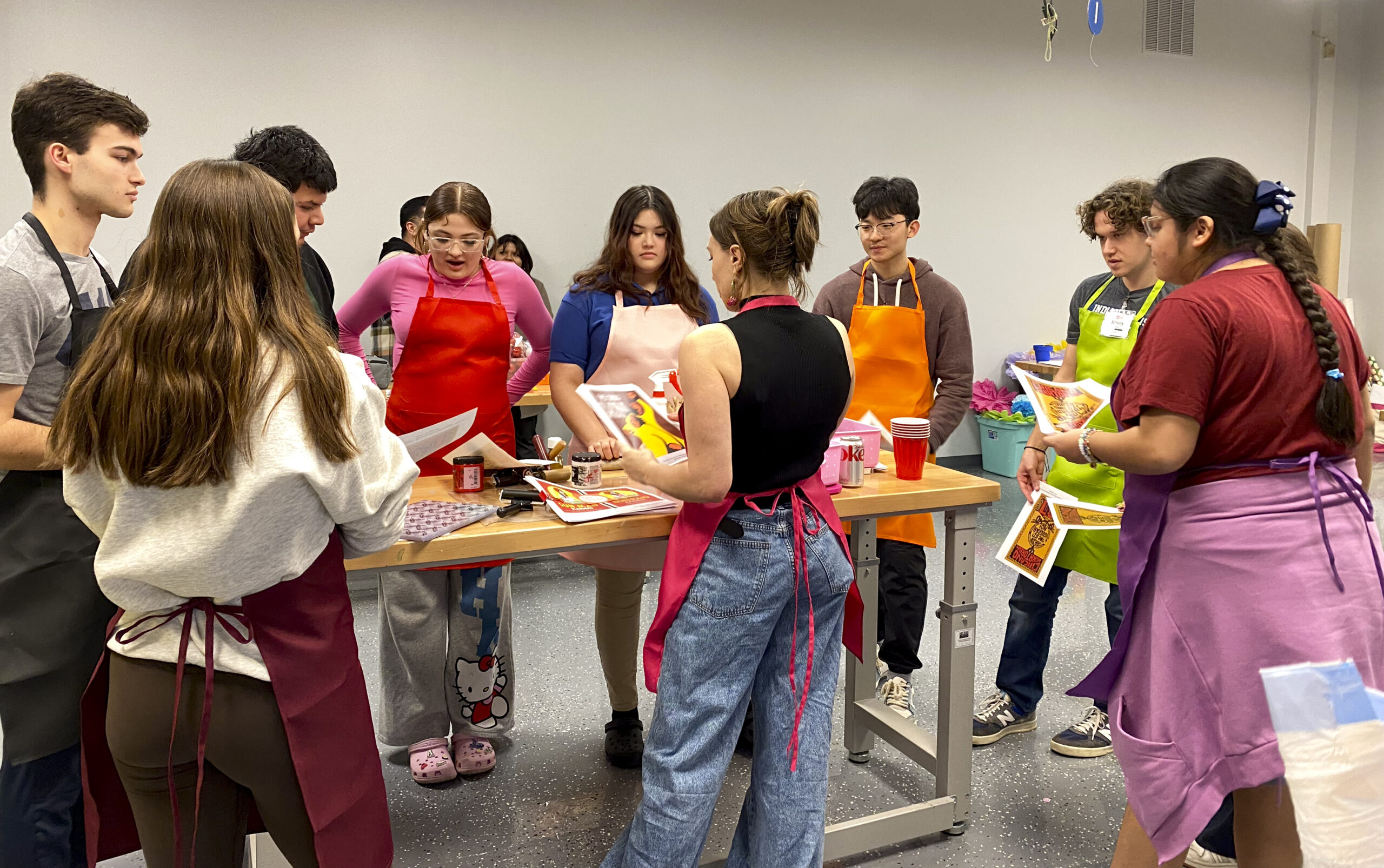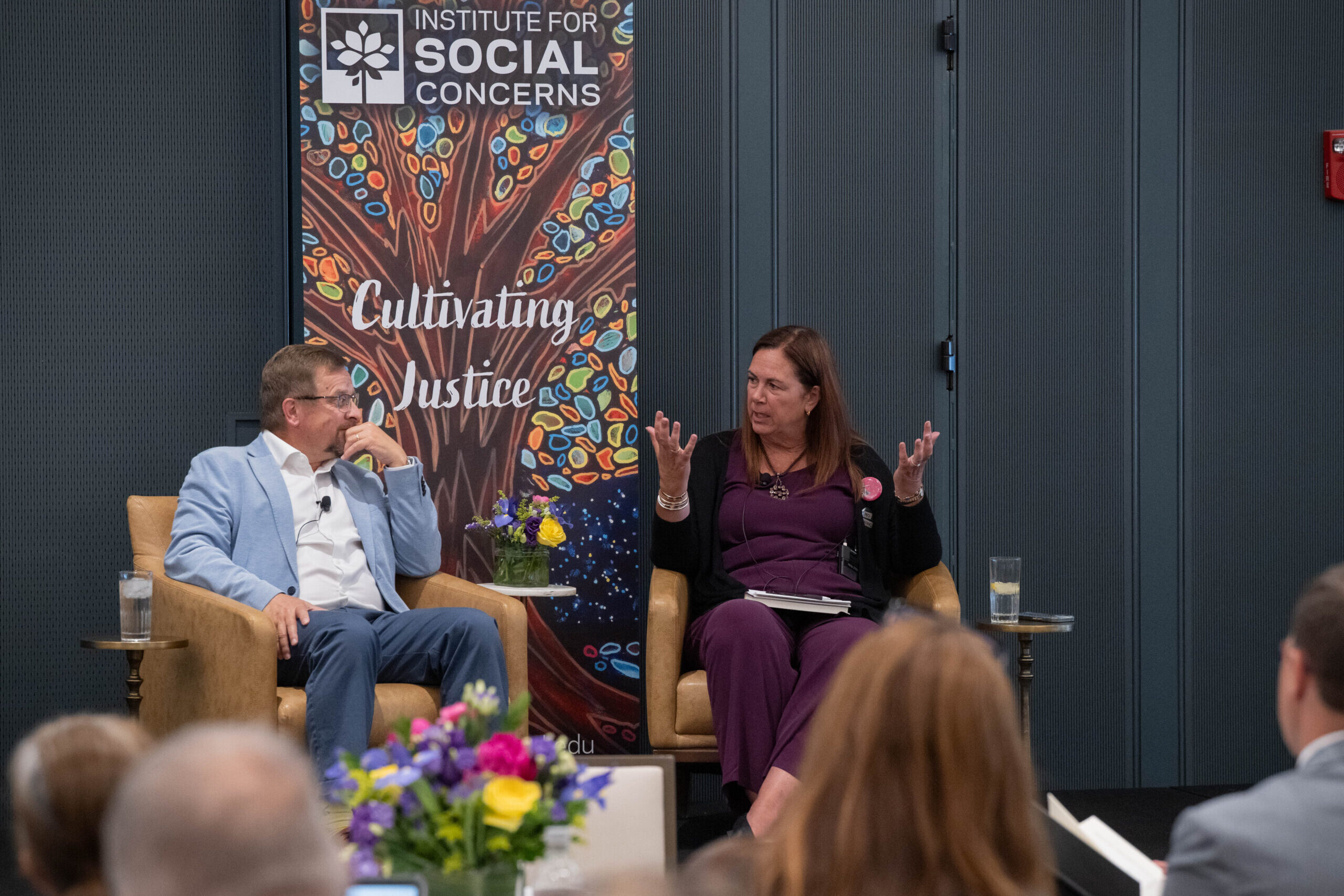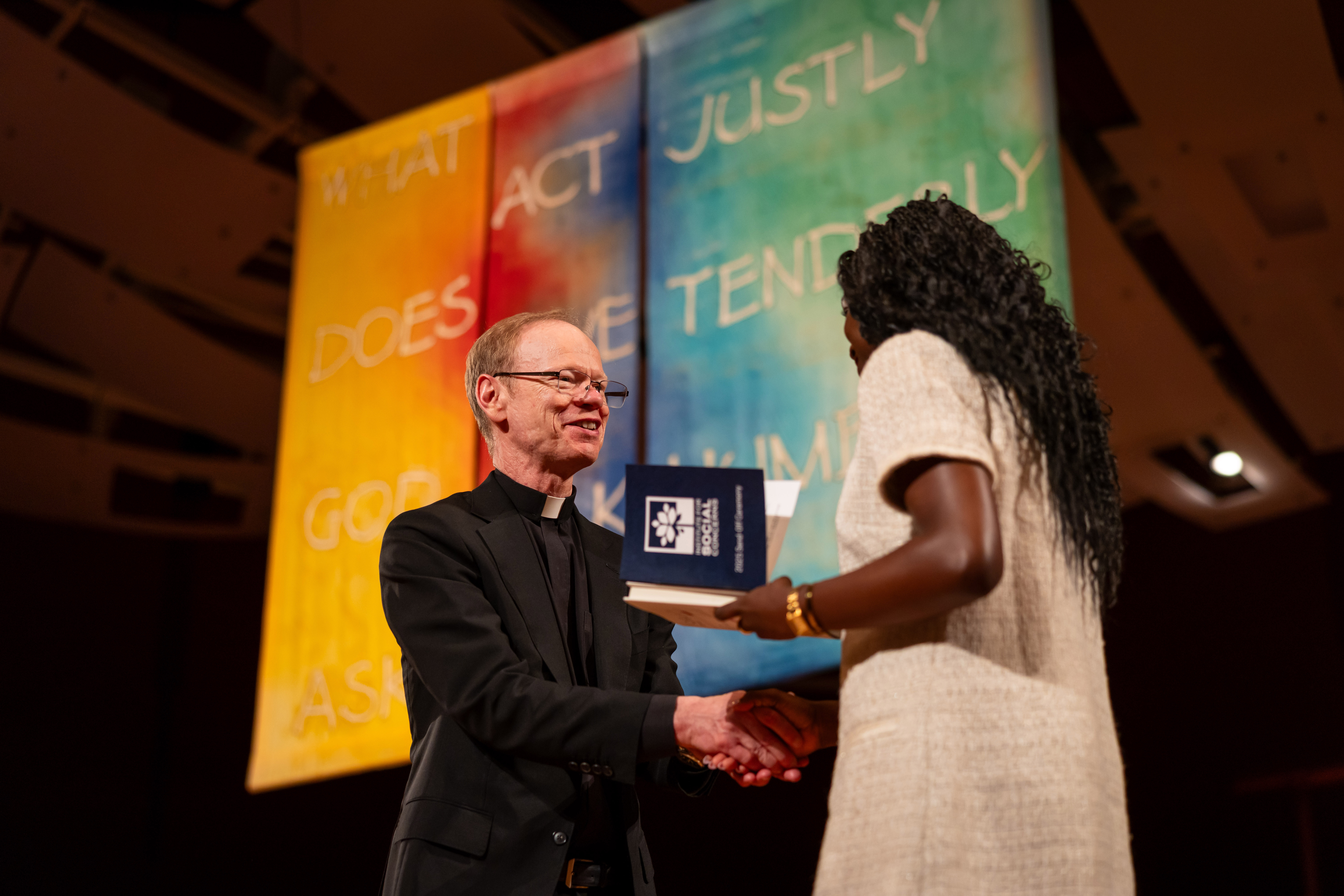Remembering Pope Francis
Institute faculty reflect on the pope’s influence on their work
May 14, 2025
“Never tire of working for a more just world, marked by great solidarity,” Pope Francis stated in a 2013 speech in Rio de Janeiro, Brazil. “ No one can remain insensitive to the inequalities that persist in the world!”
During his 12-year papacy, Pope Francis never tired of advocating for those who are poor, incarcerated, workers, and immigrants, as well as for the environment. His advocacy was not first and foremost political, however, but was rooted in a deeply theological view of the world as embraced by a loving God who calls humans to likewise encounter one another in loving embrace. As Catholic moral theologian Bryan Massingale writes, Pope Francis’s approach to Catholic social teaching was not “as a system of rules and laws that were to be unquestioningly obeyed” but rather as “a response to a living relationship with God.”
The Institute for Social Concerns has been deeply influenced not only by Pope Francis’s sermons, speeches, and writings but also by his general orientation to the moral life as one of loving encounter and care. For each of the institute’s focus areas of research—poverty, migration, labor, mass incarceration, technology, and the environment—Pope Francis reframed the conversation as a theological question. As Massingale writes, Pope Francis made us ask: “How are we to live as people who are radically and deeply loved by God in the face of the challenges that face us in the world?”
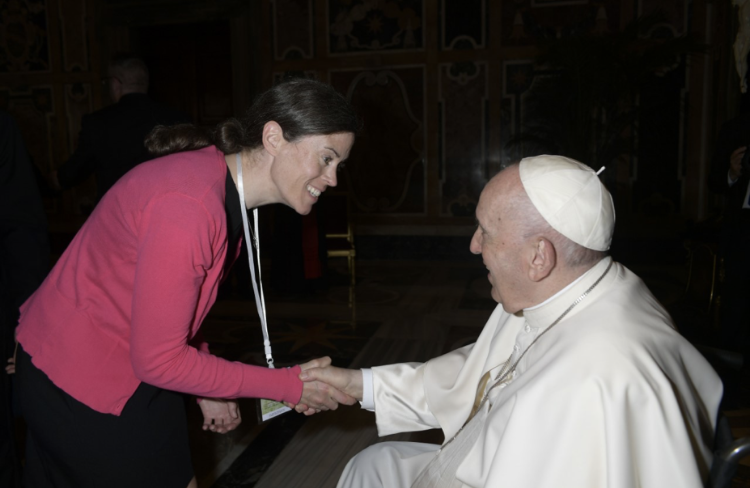
In the wake of Pope Francis’s death on April 21, several institute faculty and staff reflected on his legacy and its impact on their work.
To Suzanne Mulligan, professor of the practice and co-director of the Catholic social tradition minor, a recurring theme that has emerged in the days since the pope’s death is his humility and humanity. “His humility was evidenced in how he lived his life,” Mulligan stated. “He refused the pomp and trappings of papacy; he donated his salary to the poor; and he preferred a single bed in Santa Marta to the Papal apartment.”
At the same time, Mulligan finds his humanity witnessed in how he welcomed all people. “All who met him felt loved,” she reflected. “He understood that failure is part of the human condition, but that we are graced and redeemed also. Conscious of the brokenness of our world, Francis called us, the People of God, to become a field-hospital Church by entering into the chaos of others and responding with love, mercy, and compassion.”
In her book Dwelling with Dignity: Catholic Social Teaching and Homelessness, published shortly before Pope Francis’s death, Mulligan writes of his emphasis on encounter and proximity: “Throughout his pontificate, Pope Francis has urged us to go to the poor, to the margins, for God is revealed through their experiences, stories, and suffering. He believes that when we draw near to those on the periphery, establish proximity to the homeless, we draw nearer to God too. Proximity to the margins is a fundamental condition of encounter, therefore, and has been a cornerstone of the Holy Father’s teachings.”
Inspired by Pope Francis’s emphasis on encounter and proximity, the institute has recently launched the lecture series Encounter: Conversations on Catholic Social Tradition, convened by Mulligan, and Proximities, undergraduate seminars spearheaded by Emily Garvey, assistant director of justice education.
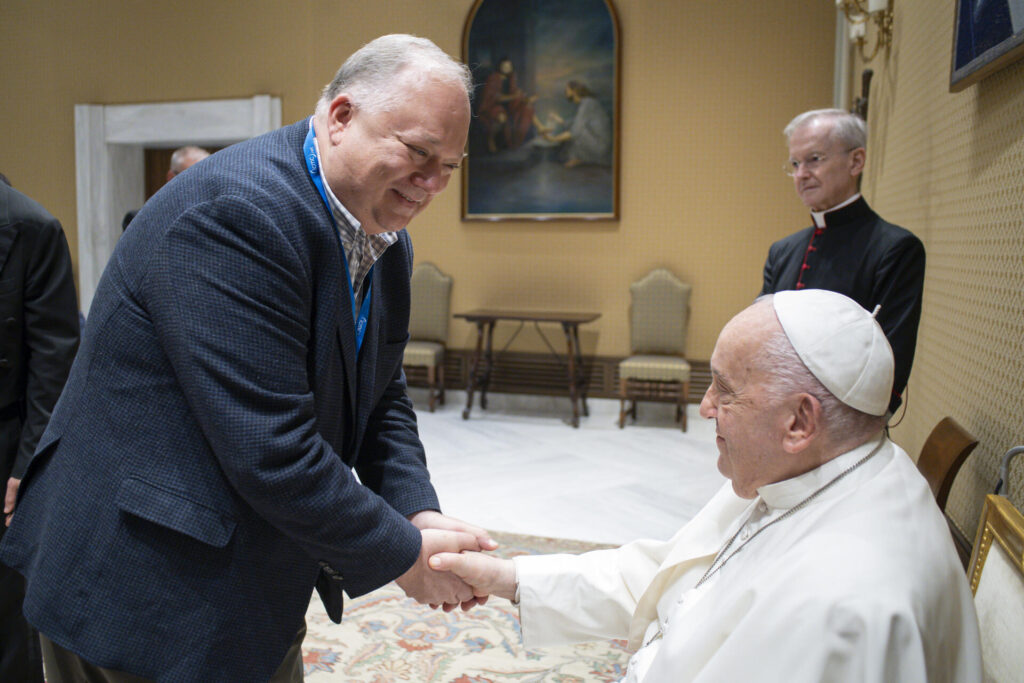
In his last encyclical, Dilexit Nos, issued on October 24, 2024, Pope Francis writes, “If you stay trapped in your own comfort zone, you will never really find security.” According to Garvey, “the seminal teachings of Pope Francis—love, mercy, forgiveness, and encounter—require us to move from our comfort zones. They involve risk and vulnerability; they are scary. But what they produce is incalculable.”
This semester, Garvey led a group of students out of their comfort zones on a Proximities seminar to the Twin Cities. There they encountered Indigenous communities who had fallen through the cracks of Minnesota’s otherwise model healthcare system. Hearing the stories of injustices from Indigenous communities was uncomfortable, but the encounters left students changed for the better. As freshman Reese Calalang reflected afterward, “I was confronted with the realities of healthcare justice in ways that reading statistics and policies alone could never fully capture.” Senior Marry De Austria added that she came away from her encounter with a renewed “resolve to contribute to the betterment of the systems in society meant to protect and support those within.”
“The profound beauty of Pope Francis and his papacy is that this risky orientation of the heart, mind, and body contributes to a just, integrated, and beautiful world,” Garvey stated. “The work of justice education at the institute uses these central themes as a North Star. What we inherit from Pope Francis’s papacy is a treasure chest of ways to think, pray, and act that give birth to the gospel message of love and justice for all.”
Ryan Juskus, assistant professor of the practice, finds inspiration for his work on environmental justice in Pope Francis’s social encyclical Laudato si’, which Juskus states is “one of the most penetrating and insightful analyses of climate change to date.”
In contrast to the Paris Climate Agreement that was reached later the same year, in 2015, Pope Francis called for an “integral ecology” that requires not only technological and policy responses but also moral and spiritual transformations in how humans relate to one another, the earth, and the Creator. “The Paris Climate Agreement largely sought to maintain the world as it is at the cost of exposing the world’s poorest to more suffering and environmental degradation, “Juskus states. “Pope Francis called for justice and transformation. Ten years on, the Paris Climate Agreement is in peril, and Laudato si’ continues to inspire ecological conversions around the world.”
Inspired by Laudato si’, Juskus will be teaching two courses on environmental justice at the institute this fall: Environmental Justice & Social Transformation and Decarbonizing Catholicism and the Common Good.
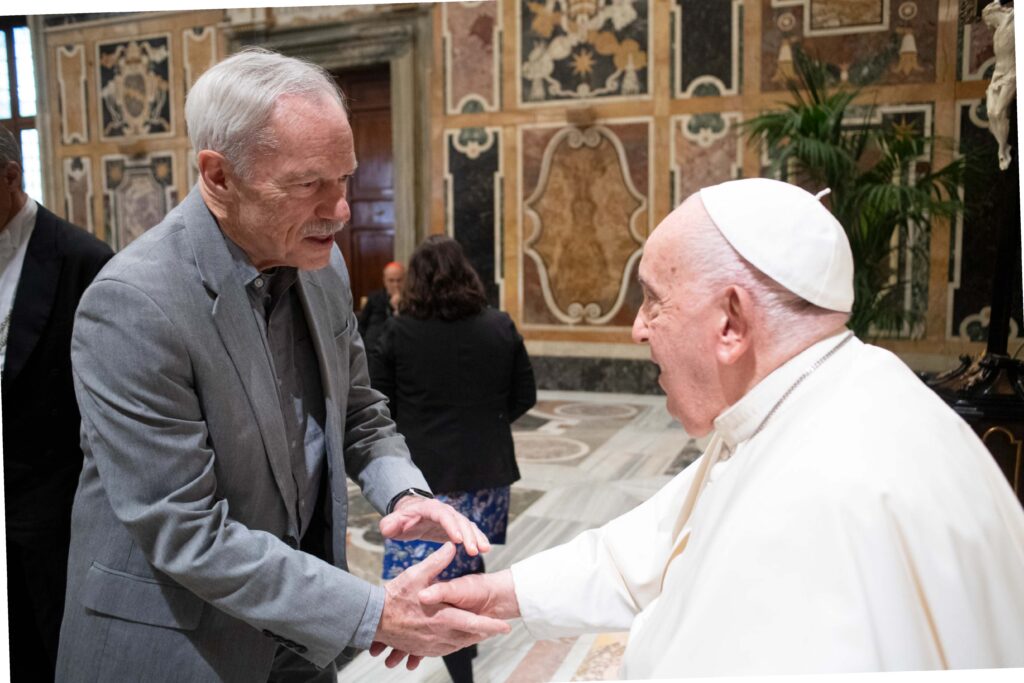
Not only Christians but people of all faiths or none were impacted by Pope Francis’s commitment to justice. On April 25, Rashied Omar, associate teaching professor of Islamic Studies and peacebuilding and faculty fellow at the institute, offered a khutbah, or sermon, in memory of Pope Francis at the Islamic Society of Michiana.
Omar observed that the pope “bore witness against oppression, regardless of the political or institutional cost. His was a rare moral voice, humble yet unwavering, embodying the spiritual mandate to stand alongside the marginalized and to speak truth to power with courage and conviction.”
As a Muslim advocate for interreligious solidarity, Omar finds in Pope Francis a kindred spirit from the Christian tradition. “Qualities such as humility, compassion, and moral love are not confined and limited to Muslims alone,” he stated. “Rather, they are universal moral and spiritual virtues acknowledged and recognized across traditions. Pope Francis, as a Christian priest, embodied and exemplified this Qur’anic ethic, walking humbly with the poor, uplifting the downtrodden, and offering moral clarity in an age of confusion.”
While celebrating the naming of Pope Leo XIV—whose namesake Pope Leo XIII laid the foundations for Catholic social tradition with his 1891 encyclical Rerum novarum—the institute remains grateful for the “great cloud of witnesses” (Heb. 12:1) of popes who have drawn from, and added to, the resources of Catholic social tradition to promote the dignity of each human and the solidarity of the human family. Pope Francis now numbers among those witnesses who point us to the God of love, mercy, compassion, and justice.
Related Stories
-
Summer of Social Concerns—students engage in justice research around the globe
-
Printmaking history—the institute partners with community to celebrate South Bend’s Latino heritage
-
Forming character through friendship—Virtues & Vocations conference promotes human flourishing in professional education
-
Go be justice—Sending off graduates to work for the common good
-
ReSearching for the Common Good: O. Amandhi Mathews


